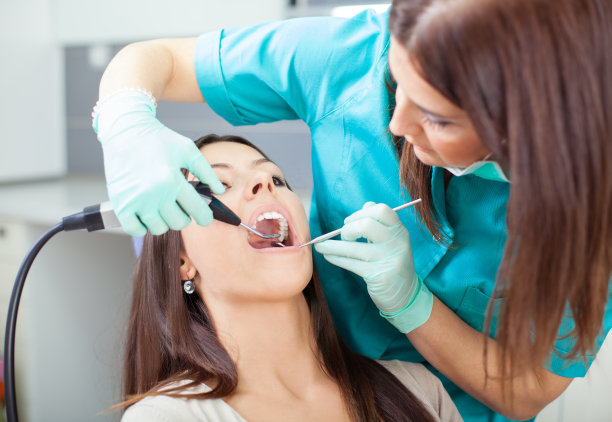Summary: Dental fillings are a common procedure aimed at restoring teeth damaged by decay or injury. However, the success of this treatment not only depends on the dentists skills but also significantly on the patients pre- and post-care routines. This article provides essential guidelines to follow before and after your dental filling to ensure optimal oral health. We explore the importance of preparation, aftercare practices, dietary considerations, and regular dental check-ups. By adhering to these guidelines, patients can enhance the longevity of their fillings and maintain overall dental wellness.
1. Importance of Proper Preparation

Before undergoing a dental filling, its crucial to prepare properly. This preparation begins with a thorough dental examination by your dentist, who will assess the condition of your teeth and recommend the best filling material. Understanding the type of filling you will receive, whether its amalgam, composite, or resin, can help you set realistic expectations for the procedure.
Additionally, discussing your medical history and any medications you are taking is vital. Certain health conditions or medications may influence the type of anesthetic used and the overall procedure. Being transparent with your dentist can ensure better customization of your treatment.
Finally, mental preparation is also important; address any anxiety related to the procedure. Consider techniques such as deep breathing exercises or talking about your concerns with your dentist to ease any apprehensions you might have. This approach can ultimately lead to a smoother treatment experience.
2. Aftercare Practices for Optimal Recovery
After receiving a dental filling, following proper aftercare protocols is essential for recovery. One of the first recommendations is to avoid eating for at least two hours post-procedure. This guideline is crucial to allow the anesthetic to wear off and prevent biting your cheek or tongue unintentionally.
Furthermore, engaging in soft food consumption for the following days can prevent discomfort while ensuring that the filling sets properly, especially if a temporary filling was used. Foods such as yogurt, mashed potatoes, and smoothies are excellent choices during this phase.
Another important aspect of aftercare is maintaining good oral hygiene. Gently brushing your teeth and avoiding the filled area for the first 24 hours can help minimize any irritation. Gradually reintroducing brushing and flossing while being careful around the filling site will ensure that your oral health remains intact.
3. Dietary Considerations Post-Filling
The foods you eat after receiving a dental filling can significantly impact its longevity and your overall oral health. Avoiding hard, sticky, or sugary foods during the initial recovery period is crucial. These types of foods can dislodge or damage the filling.
Instead, focus on incorporating nutrient-rich foods that promote healing, like fruits and vegetables, lean proteins, and whole grains. Foods rich in calcium, such as dairy products, can strengthen your teeth and support overall dental health.
Additionally, staying hydrated is important. Drinking water can help wash away food particles and bacteria, reducing the risk of infection. Limiting acidic beverages, such as soda and citrus juices, can also minimize sensitivity and protect the filling.
4. Importance of Regular Dental Check-Ups
Following a dental filling, scheduling regular check-ups with your dentist becomes even more important. These visits allow your dentist to monitor the condition of your filling and detect any potential issues before they worsen. Regular check-ups are crucial for maintaining overall oral health.
During these appointments, your dentist can perform cleanings and offer personalized advice based on your dental habits and oral condition. They can help identify early signs of decay or complications related to the filling.
Furthermore, fostering an ongoing relationship with your dentist through these regular visits promotes proactive dental care. Patients can stay informed about the latest oral health practices and technologies, contributing to better outcomes in dental treatments.
Summary:
Properly preparing for and caring for dental fillings is essential for achieving and maintaining optimal oral health. Patients should engage in thoughtful preparation, adhere to aftercare practices, be mindful of dietary choices, and prioritize regular dental check-ups to maximize the effectiveness of their teeth restorations.
This article is compiled by Vickong Dental and the content is for reference only.
Vickong Dental
Vickong Dental is a large medical group established in Hong Kong in 2008 by professors from well-known medical universities in Guangdong and Hong Kong, as well as medical doctors from key national '985' universities (including Master's supervisors and senior professors). The chain of branches brings together expert dentists with PhDs and Master's degrees from Hong Kong and Mainland China, committed to providing high-quality dental treatment.
"Vickong Dental Practices the University Motto of 'Healing and Serving Society,' with a Stable Operation for Sixteen Years. It Has Been honored with Hong Kong Enterprise Leaders's Choice,' and is a Global Trusted Implant Center for the Nobel Implant System. Recommended by Hong Kong Metro Broadcast and Guangdong Television, it Serves Customers from Over Thirty Countries and Regions, Gaining the Trust and Favor of Citizens from the Guangdong-Hong Kong-Macau Greater Bay Area and Surrounding Cities.

Thousands of customers' unanimous praise
The most recognized and highly recommended dental service by customers in the Guangdong-Hong Kong-Macau Greater Bay Area
We Ensure You Receive Detailed Care and Attention Here
Hong Kong standards, Shenzhen prices, Your Trusted English-speaking dentists

Vickong Dental Medical-Grade Instrument Disinfection Process
Vickong Dental Medical-Grade Instrument Disinfection Process

Vickong Dental Chain: A Warm and Comfortable Environment for Treatment






Appointment Hours

Q&A
Why choose Vickong Dental?
Vickong Dental practices the university motto 「Medicine to Benefit Society」, with each branch bringing together highly qualified dentists with doctoral and master’s degrees from Hong Kong and the Mainland, and has maintained seventeen years of steady operation。Recipient of 「2024 Hong Kong Enterprise Leaders Brand」, 「2025 Hong Kong Enterprise Leaders Brand」, a Nobel Biocare Global Trusted Implant Center, and a brand recommended by Metro Radio Hong Kong and Guangdong TV。
To date, we have served customers from more than thirty countries and regions,earning exceptionally high word-of-mouth recognition and trusted recommendations from residents across the Guangdong-Hong Kong-Macao Greater Bay Area and surrounding cities
We have eight major branches in Zhuhai、Shenzhen,and a consultation and service assurance center in Hong Kong,so you can book a free consultation at any time for any questions,which is very reassuring.
If I do not accept the quotation after the CT scan, will I be charged??
No! As long as the actual treatment has not started, you will not be charged any fees.
Will there be any additional charges during the treatment process?
No, there won’t be any additional charges. Before treatment begins, we will clearly explain the treatment plan and its corresponding fees. Only after the patient agrees and signs the consent form will we proceed with the dental service.
Can I pay in Hong Kong dollars?
Yes. Vickong Dental accepts payment in Hong Kong dollars. The amount will be converted based on the exchange rate of the day, and the applicable rate will be clearly communicated to you in advance.
Can I reschedule my appointment at any time?
Yes. Please contact us via **WeChat** or **WhatsApp** as early as possible, providing your original appointment time and details, along with your preferred new date and time slot for rescheduling.













